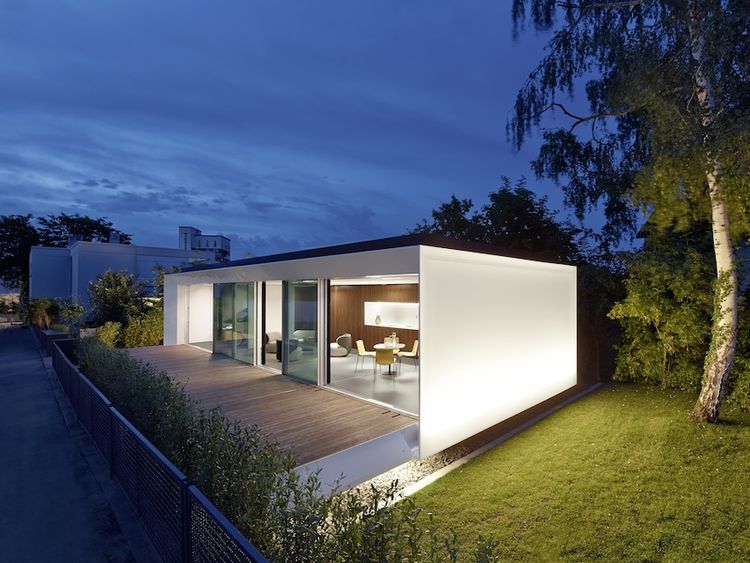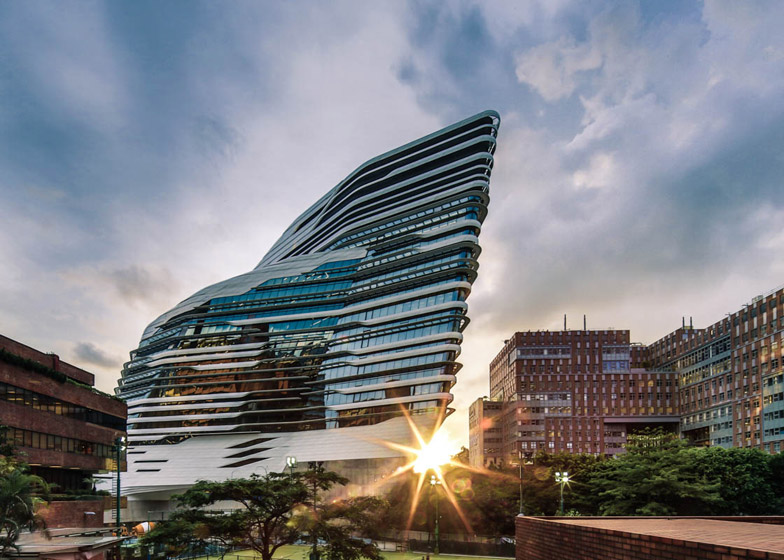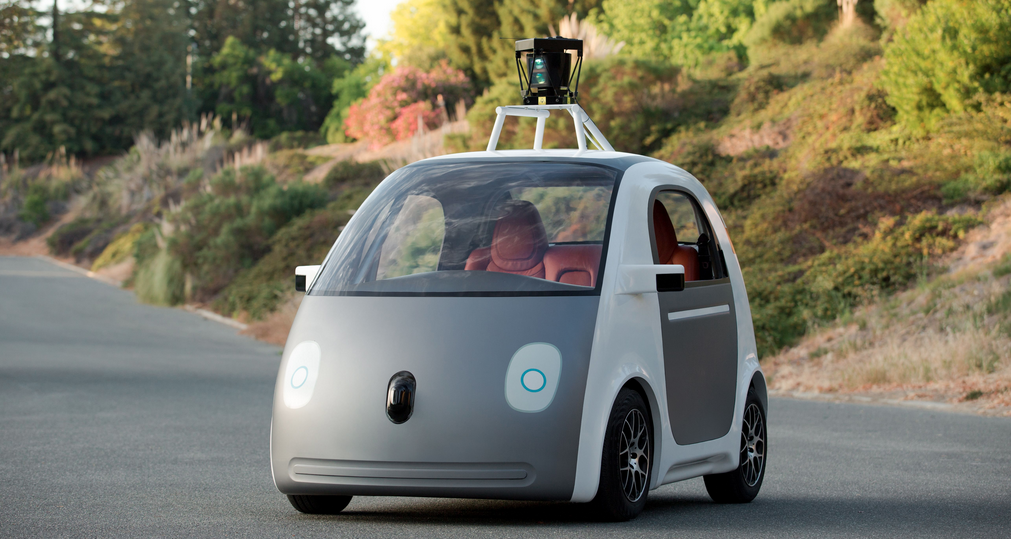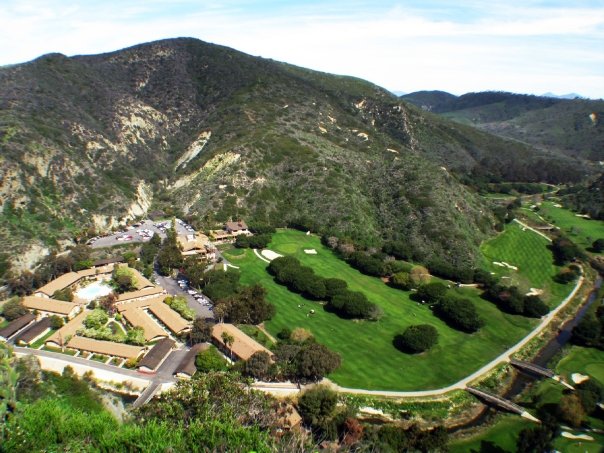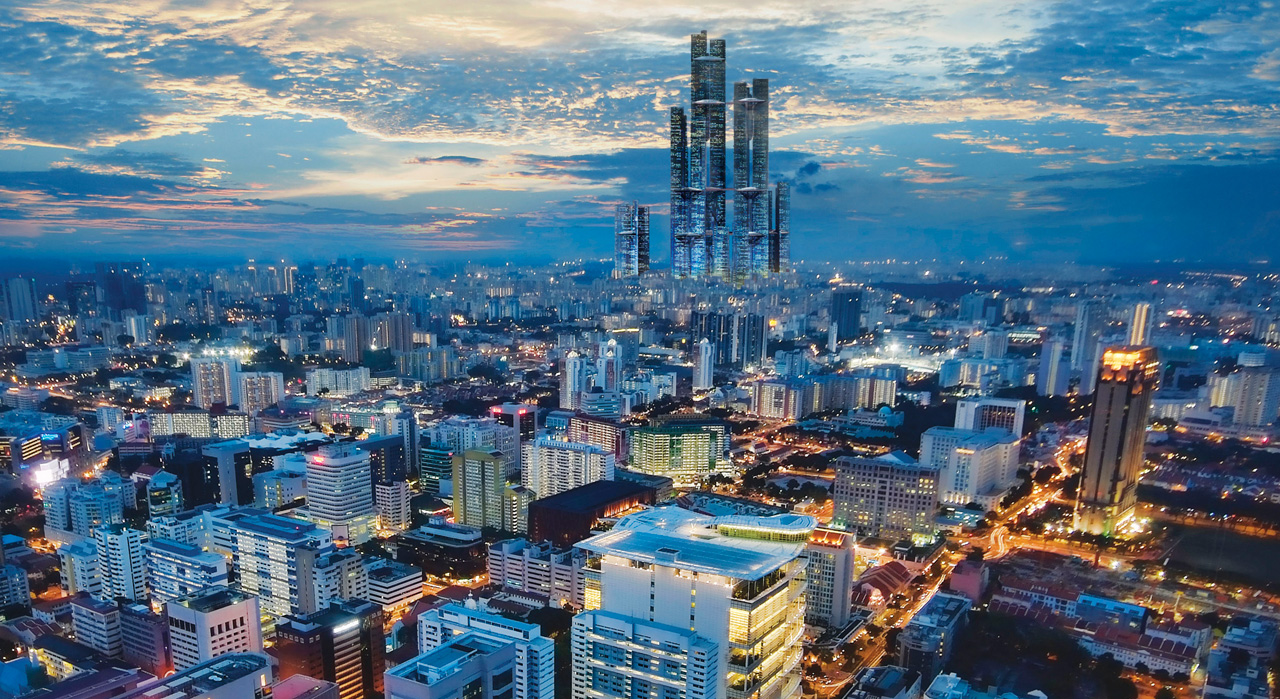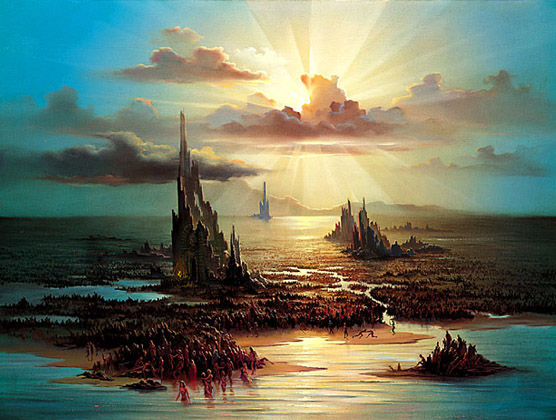This is the first post in a series where I present the case for Geo-Fauvism, a growing movement of wild earth inspiration in art, literature, music and design. Taking off from the early 20th Century French art “Fauvists” or “Wild Beasts,” these cross-disciplinary creations respond to and react against the collapse of global environmental systems, the destruction of indigenous earth-based societies, and a narrowing of cultural opportunities in the mainstream corporatized media. Geo-Fauvists create to reconnect with the wild and heal humanity’s rift with the landscape, building a new community based on integration with the ecosystem.
Sustainability
German Prefab House Generates Twice its Own Energy
The prefab Active House B10 prototype in Stuttgart can be built in a day, but its implications will be felt for years. Taking the passive house net zero concept one step further, this fully recyclable tiny house actively generates enough power for multiple properties through its rooftop photovoltaics.
Starchitects and Spectacle: Sustainability Solutions Needed
Architecture must move on from an addiction to spectacle and fad, adrift in a sea of meaningless forms, leaving serious design and sustainability problems unresolved, says Peter Buchanan. But to do this will require a more critical perspective from architectural academe and the media.
Pod Cars: Autonomous Vehicles vs. Personal Rapid Transit
The age of the pod car might be upon us, but not necessarily as the long-envisioned Personal Rapid Transit. Good for amusement parks and Google’s main campus, as well as small newly-built cities or airport shuttles, PRT systems have too many limitations in dense urban areas. The real future for the pod car, like it or not: Autonomous (Self-Driving) Vehicles.
Laguna Beach “Ranch” Hotel Renovation Violates Coastal Rules
The California Coastal Commission failed to enforce the Coastal Act and did not require a Laguna hotel renovation to address destruction of affordable rooms and environmental habitat as well as finish the long-awaited Trail to the Sea.
Sustainable Vertical Urbanism: The Future of Cities?
“Vertical City,” a complete ecosystem in the sky that you never have to leave, accommodates population growth and protects the planet, but may have significant drawbacks for the people who call it home and their connection to the earth. Projects in China and Dubai illustrate the concept and its limitations.
Convivial Degrowth: An Ecologic Reckoning for an Ailing Planet
The model planners and economists touted as “sustainable development” has only exacerbated ecologic distress and community dislocation through its focus on wealth-creation. The needs of our ailing planet facing an impending 11 billion population calls for ecology and human welfare to dominate economy, but how to achieve this in a world bought and paid for by finance capitalism?


